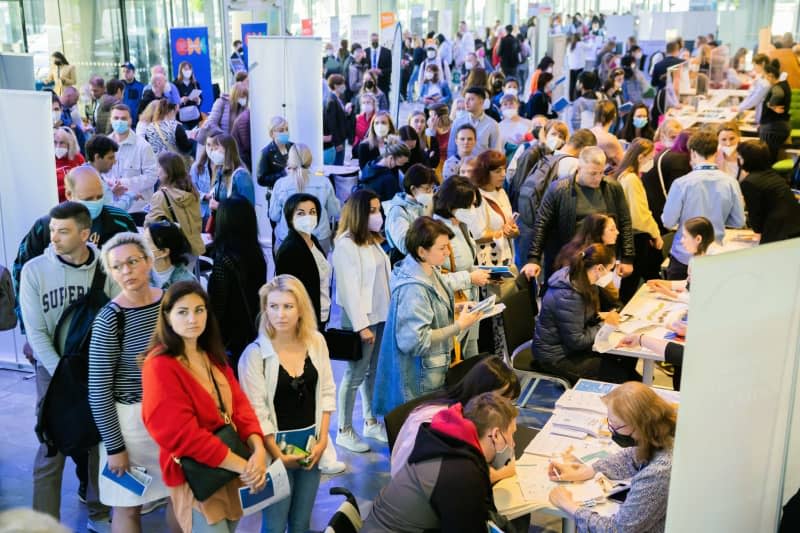German labour market needs further immigration, officials argue

- Oops!Something went wrong.Please try again later.
Immigrants have helped keep the German economy humming and the country's labour market from collapsing, the leader of Germany's Federal Employment Agency said on Wednesday.
Last year, immigrants to Germany from outside the European Union accounted for the largest group of people taking up jobs in Germany, where employers have complained of difficulties in hiring sufficient staff, said Andreas Nahles, the agency's chairwoman.
Between June 2022 and June 2023, a total of 53,000 Ukrainians alone took up jobs subject to social security contributions in Germany, along with another 24,000 immigrants from India.
"According to our forecast, this will increase in the future," said Nahles, adding that this is driven by demographic shifts that mean Germany must attract more workers from abroad.
The baby boomer generation is beginning to retire, companies are facing widespread shortages and unemployed people already living in Germany are often older or lack sufficient skills for in-demand positions.
Fewer workers from other EU countries such as Romania, Bulgaria and Poland are moving to Germany, as those countries now face demographic problems of their own.
"Germany has the highest level of employment that we have ever recorded in history," Chancellor Olaf Scholz said on Wednesday during a debate in parliament in Berlin.
Scholz argued that his coalition government deserves credit for a successful employment and workforce policy.
Labour Minister Hubertus Heil, meanwhile, said high levels of employment combined with persistent job vacancies at German companies "clearly shows" how dependent Germany is on "immigration into the labour market."
Heil said that an increase of 217,000 people working jobs in Germany compared to the same month last year was exclusively due to immigration from elsewhere in the EU and beyond.

